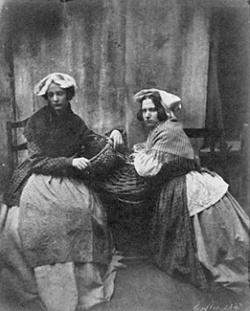Archives serve as repositories of knowledge in various ways, playing a critical role in preserving and making accessible the collective memory and historical record of societies. Here are some of the ways in which archives fulfil this function:
- Preservation of historical records: Archives collect, organize, and preserve a wide range of documents, records, and materials, including manuscripts, photographs, maps, audiovisual materials, and more. These records provide valuable insights into the past, enabling researchers and historians to study and interpret historical events, social changes, and cultural developments.
- Access to primary sources: Archives house primary source materials that serve as the foundation for research and scholarship. These primary sources include letters, diaries, official documents, photographs, and other original records that provide firsthand accounts of historical events and the experiences of individuals and communities.
- Documenting cultural heritage: Archives help preserve and protect the cultural heritage of societies. They store and safeguard artifacts, art, and documents that are of significant cultural, artistic, or historical value. This ensures that future generations can learn about their cultural roots and heritage.
- Facilitating research and scholarship: Archives provide researchers, scholars, and students with access to a wealth of historical information. They offer a controlled environment for studying and analyzing primary sources, enabling a deeper understanding of the past. Researchers can use archives to support academic inquiries, write books and articles, and contribute to a better understanding of history and culture.
- Legal and administrative documentation: Archives are often the official repository for governmental, legal, and administrative records. This includes birth and death certificates, land deeds, court records, and other important documents. These archives help ensure the transparency and accountability of government actions and support legal processes.
- Long-term memory and accountability: Archives serve as the long-term memory of society. They document events, decisions, and actions, allowing for accountability and the study of the consequences of past choices. This can be crucial for governments, organizations, and individuals to learn from history and make informed decisions.
- Informing policy and decision-making: Archives can be important resources for policymakers and decision-makers. They offer insights into past policies, their outcomes, and the historical context in which they were implemented. This knowledge can help inform present and future policy decisions.
- Cultural and social understanding: Archives contain a wide range of materials that provide insights into the social, cultural, and economic life of different time periods. They offer a window into the lives and experiences of people from various backgrounds and can contribute to a richer understanding of society’s evolution.
In summary, archives are vital repositories of knowledge as they collect, preserve, and make accessible historical records, primary sources, and cultural artifacts. They play a fundamental role in advancing research, scholarship, cultural preservation, and the collective memory of society.
William Collie
William Collie was one of the first photographer to use Fox Talbot’s calotype process in Jersey, Collie was born in Scotland in 1810 and was in business in Jersey in Belmont Road and Bath Street from before 1850 until 1878. A picture of Market Women in St Helier taken in 1847 and printed on salted paper survives in a private collection. started his professional life as a portrait painter. He moved south and is recorded as living in St Helier, Jersey, before 1841, where he had a portrait business. He became one of the earliest photographers working in the Channel Islands, operating from Belmont House, St Helier, until 1872. Another photographer, J Collie, is recorded at the same address between 1861-64. The Société Jersiaise Photographic Archive lists 157 photographs by William Collie, but not a single one can be viewed online. What are self-portraits are accompanied by the notice ‘Image field to be deleted RPS request’ and all 157 images are described as being the copyright of the Royal Photographic Society. None are visible to website visitors. This is an absolute nonsense, because the images ceased to be anybody’s copyright 70 years after William Collie’s death – ie in 1966.


This is one of the earliest records which is on show of William Collies work.
